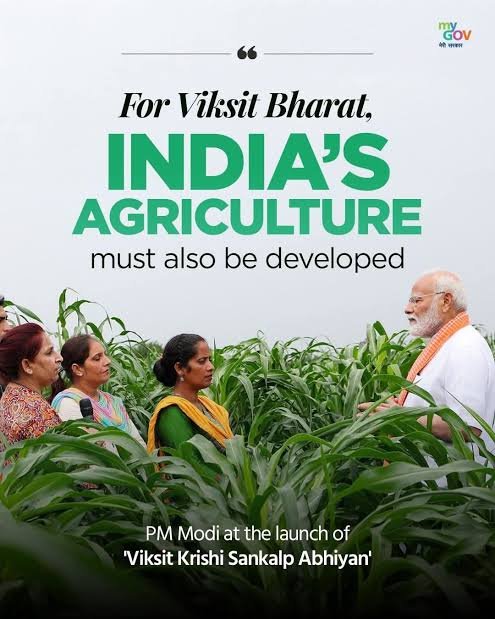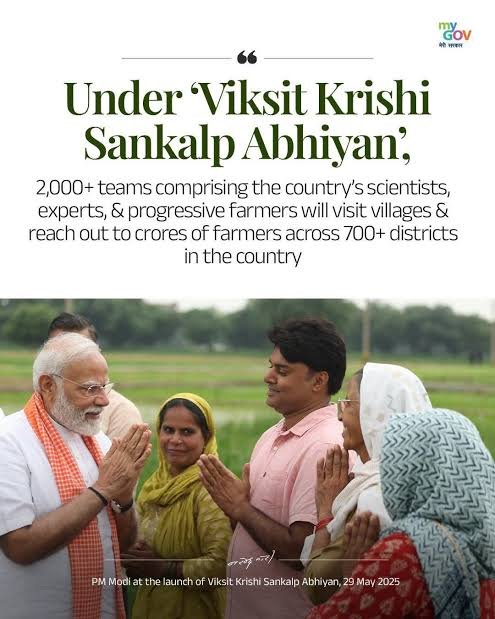Agriculture is the backbone of India’s economy, employing nearly 45% of the population and contributing significantly to GDP. For India to become a Viksit Bharat by 2047, it must transform its agriculture sector into a modern, technology-driven, and globally competitive industry. Empowering farmers with better incomes, resources, and market access will not only ensure food security but also promote rural prosperity.

Role of Agriculture in Viksit Bharat 2047
- Ensures food and nutritional security.
- Provides livelihoods to millions of rural families.
- Reduces urban migration by creating rural opportunities.
- Strengthens India’s position as a global food exporter.
- Promotes inclusive growth and rural empowerment.
Major Reforms and Initiatives for Agriculture Growth
1. Digital Agriculture Mission
- Use of AI, IoT, and drones in farming.
- Helps in crop monitoring, weather prediction, and precision farming.
- Reduces wastage and improves productivity.
2. PM-KISAN Yojana
- Direct financial support of ₹6,000 annually to farmers.
- Improves liquidity and supports small & marginal farmers.
3. Soil Health Card Scheme
- Ensures balanced use of fertilizers.
- Improves soil fertility and sustainable agriculture.
4. Organic and Natural Farming Promotion
- Encourages chemical-free farming.
- High global demand for organic produce.
- Increases farmers’ income through premium pricing.
5. National Agriculture Market (e-NAM)
- Provides farmers with a digital platform to sell produce.
- Eliminates middlemen and ensures better price discovery.
6. Irrigation and Water Management
- Pradhan Mantri Krishi Sinchai Yojana (PMKSY).
- Focus on “Har Khet Ko Pani”.
- Micro-irrigation to save water and improve efficiency.
7. Crop Insurance and Risk Management
- Pradhan Mantri Fasal Bima Yojana (PMFBY) provides insurance cover.
- Reduces risk of crop loss due to natural disasters.

Empowering Farmers for a Viksit Bharat
- Training farmers in modern techniques and digital literacy.
- Encouraging Farmer Producer Organizations (FPOs) for collective bargaining.
- Expanding access to rural credit and microfinance.
- Promoting agro-based industries for value addition.
- Encouraging youth participation in Agri-startups.
Challenges in Indian Agriculture
- Over-dependence on monsoon.
- Small and fragmented landholdings.
- Low mechanization in rural areas.
- Post-harvest losses and lack of storage.
- Fluctuating market prices.
Way Forward for Viksit Bharat 2047
To empower farmers and modernize agriculture, India must:
- Invest in agri-tech and innovation.
- Expand cold storage and supply chains.
- Encourage crop diversification and high-value crops.
- Ensure minimum support price (MSP) reforms.
- Promote climate-resilient farming practices.



